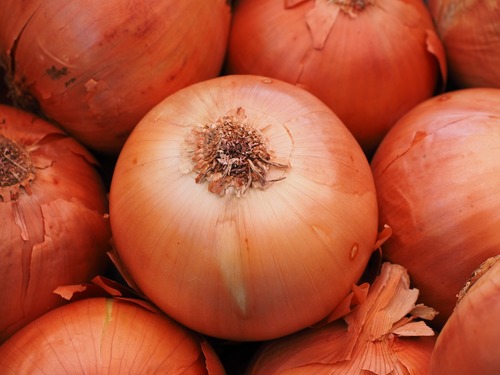Short answer
Contrary to being bad for you, onions are actually very nutritious. However, it is important to limit your intake if you’re taking blood-thinning medication.
Long answer
This isn’t a trick question. Like most natural, organic foods, there’s no doubt that onions are packed with nutrients and benefits.
Onions date all the way back to 3500 B.C. by the Egyptians, but, according to the National Onion Association, it wasn’t until later on that people actually consumed it, reaping the overpowering advantages that lie within the layers of the onion. Sure, they might make your breath reek, but they also make burgers and other foods finger-lickin good. And on top of it all, it’s healthy. (And no, this doesn’t mean burgers are healthy).
The onion is well-known for being rich in antioxidants. Oxidants are chemicals, smoke, and free radicals in the air that age us. And although we cannot avoid oxidants, we can combat them with antioxidants. Onions contain quercetin, a flavonoid, which is a type of antioxidant, that disarms and fights oxidants.
In addition, lots of evidence poses that quercetin can help fight against common diseases and cancers such as breast, colon, and ovarian cancer. But WAIT, there’s more.
Studies have supported that the smelly vegetable does much good for our hearts. Onions can act as a natural blood thinner, a solution to cases of high blood pressure and heart attacks. Although, since these studies focused on animals, more work needs to be done to ascertain the effects on humans.
As far as humans go, the natural health benefits still prelude. It’s a bit difficult to show the effects of onions because no matter how nutritious they are, it’s not very kosher to eat a whole onion. However, in studies analyzing vegetables, including onions, the participants who indulged in this specific diet gained more heart protection. And we can conclude that onions play a major role in this because of the flavonoid quercetin. Fruits and vegetables rich in flavonoids have studies supporting their effectiveness in fighting heart disease.
With a crop so pertinent to our health and overall happiness, why is it that onions make us cry? Lifescience.com tells us the reason being the sulfur-based gas that is released when you slice into an onion.
To reduce crying, try adopting these practices:
- chew bread
- chew gum
- light a candle
- chill the onion for about 30 minutes
Fun facts:
- Over peeling is a thing. Try not to peel off so much of the top layer; you’ll be stripping away quercetin.
- What did the Egyptians use onions for since they weren’t the first to actually start eating it? Egyptians used onions as a sign of worship. They symbolized eternity (you know, because onion layers go on and on)
- Roman gladiators thought rubbing themselves with onions would strengthen them and increase their speed.
- Even the U.S adopted this mindset:
- “I will not move my army without onions!”-Ulysses S. Grant.
- In the Middle East, onions were used to help pay rent.
Possible short-term side effects
- heartburn (in people with chronic heartburn) bloating (from carbs)
Ingredients to be aware of
- vitamin k—if paired with blood thinning drugs, this may be a problem.

Benefits
- natural blood thinner
- anti-inflammation
- increases bone density
- cancer prevention
 Approved by
Approved by 















